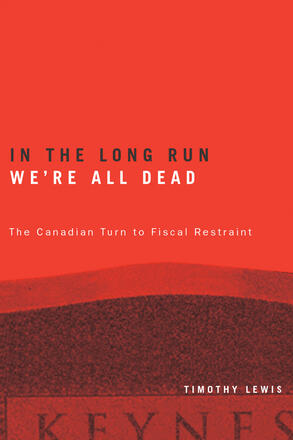
In the Long Run We're All Dead
The Canadian Turn to Fiscal Restraint
In The Long Run We’re All Dead: The Canadian Turn to Fiscal Restraint addresses how the decline of Canadian Keynesianism has made way for the emergence of politics organized around balanced budgets.
Description
In The Long Run We’re All Dead: The Canadian Turn to Fiscal Restraint offers the first comprehensive scholarly account of this vital public policy issue. Lewis deftly analyzes the history of deficit finance from before Confederation through Canada’s postwar Keynesianism to the retrenchment of the Mulroney and Chrétien years. In doing so, he illuminates how the political conditions for Ottawa’s deficit elimination in the 1990s materialized after over 20 consecutive years in the red, and how the decline of Canadian Keynesianism has made way for the emergence of politics organized around balanced budgets.
Reviews
Not long ago, deficits were seen as positive things in Canada. Now deficits are seen as evil. Timothy Lewis has just published a fascinating book which traces the transformations of Canadian attitudes. [It] is an illuminating account of the interaction between ideas and politics, between economic theories and political limitations, possibilities or necessities."
- Graham Fraser
A thoughtful, detailed analysis of deficit politics and its relationship to the role of ideas in shaping both public policies and public perceptions of them ...[It is] an effective teaching and analytical tool for instructors and students of public policy.
- Geoffrey Hale